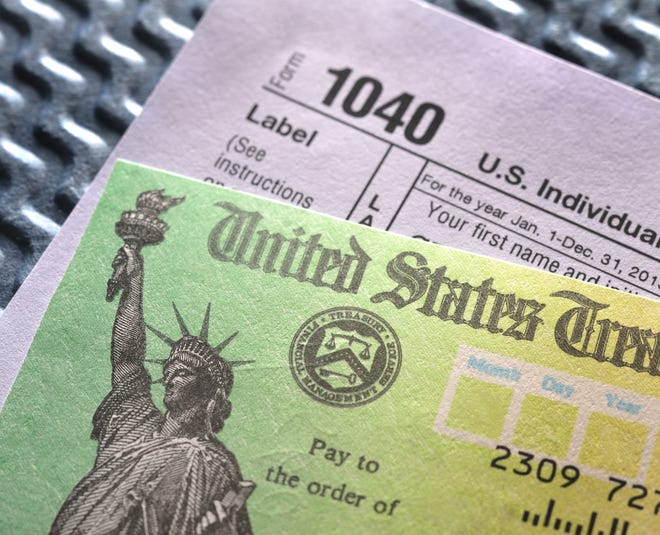Question: It seems increasingly common for wealthy Minnesota retirees to live in another state for six months and a day to avoid paying Minnesota state income tax on their pensions and investments. How is this tracked for compliance?
A: “That’s a good question,” said Ryan Brown, spokesperson for the Minnesota Department of Revenue. “The 183-day (6-month) rule applies to residency.”
The 183-day rule applies most directly in determining who is clearly required to file a state income tax return. The rule is one of two parts of a residency test under state tax law. If someone spends 183 days in Minnesota – and being in the state for part of a day counts toward the total – they triggered Part 1 of the test. And if they have a place to live in Minnesota, they’ve triggered Part 2.
The second part of this two-step determination of residence is defined as follows on the website of the Ministry of Revenue: “You or your spouse rent, own, maintain or occupy a residence. A mansion is a Minnesota residence suitable for year-round use and equipped with its own cooking and bathing facilities.
So, if you complete the two-part test, you have to pay state income taxes.
Logic could then suggest that if someone fails either part of the two-part Minnesota residency test, they are not a resident of Minnesota and are not required to file a return. state revenues. But that’s tax law, and it’s not – surprise, surprise – that simple.
It’s kind of like what Ask Us Guy learned over many years about the logical mistakes of Larry the Cucumber and Bob the Tomato while watching “Veggie Talesâ€. Larry the Cucumber noted that “The lady at the zoo said so – and who am I to tell her she’s wrong?” – ‘If there is a tail, it’s a monkey. No tail, monkey.
Which led Larry to mistakenly conclude that a camera or a salad or a pillow, which does not have a tail, were therefore monkeys. And Bob the Tomato couldn’t dissuade Larry from believing that kites and comets, since they have tails, are in fact monkeys.
People with a home in Minnesota could find themselves the losers in an audit if they start to think like Larry the Cucumber and assume that failing the Minnesota residency test by living 51% of the year in the south means that ‘They are not a resident of Minnesota. More than one characteristic determines whether a creature is an ape, ape, or a Minnesotan.
“When determining residency, we look at several factors of domicile,†said Brown, pointing Ask Us Guy to another part of the Revenue website. “We consider a variety of factors and no single factor will determine their domicile.”
A person can spend 100% of the year living outside the borders of Minnesota and still be a Minnesotan under the tax law “if you are leaving Minnesota but do not intend to stay permanently in Minnesota. another state or country, â€according to the website.
The “variety of factors†mentioned by Brown is a long list, and “physical presence – where you spend the majority of your time†tops the list. But other factors can compensate for this, including where you keep most of your belongings, where your spouse and children live, where you are a member of a club, organization or organization. church, and where you or your family attend school and whether state tuition has been charged.
The list of tests the Department of Revenue uses to determine if you owe Minnesota income taxes goes on and on.
Where do you have a job or union membership or professional license? Where do you own real estate? Where do you have business connections? How much is your home in Minnesota compared to the value of your home in another state? What is the address on your driver’s license? Where are you registered to vote? Are you paying the non-resident fee for your Minnesota fishing or hunting license? How do you respond to your insurer when asked where you live?
All of these things and more could come into play if you are audited. And the tax department doesn’t talk about what can trigger an audit.
“The selection criteria we use to determine audits – any audit, not just residency audits – is non-public information,†Brown said.
Bottom Line: Digging more than half a year outside of Minnesota doesn’t automatically mean you’re no longer a Gopher. (Also, a ground squirrel is not an ape just because it has a tail.)
One more thing, although it probably won’t be of much use to the conclave of former Minnesota residents who congregate in Naples, Florida during the cold half of the year.
The whole issue of residency in the state is irrelevant for Minnesota tax purposes if your gross income is less than $ 12,400 because people below that threshold do not have to file. statement anyway.
Contact us at The Free Press, 418 S. Second St., Mankato, MN 56001. Call Mark Fischenich at 344-6321 or send your question to [email protected]; put Ask Us in the subject line.
 Resource KT
Resource KT


